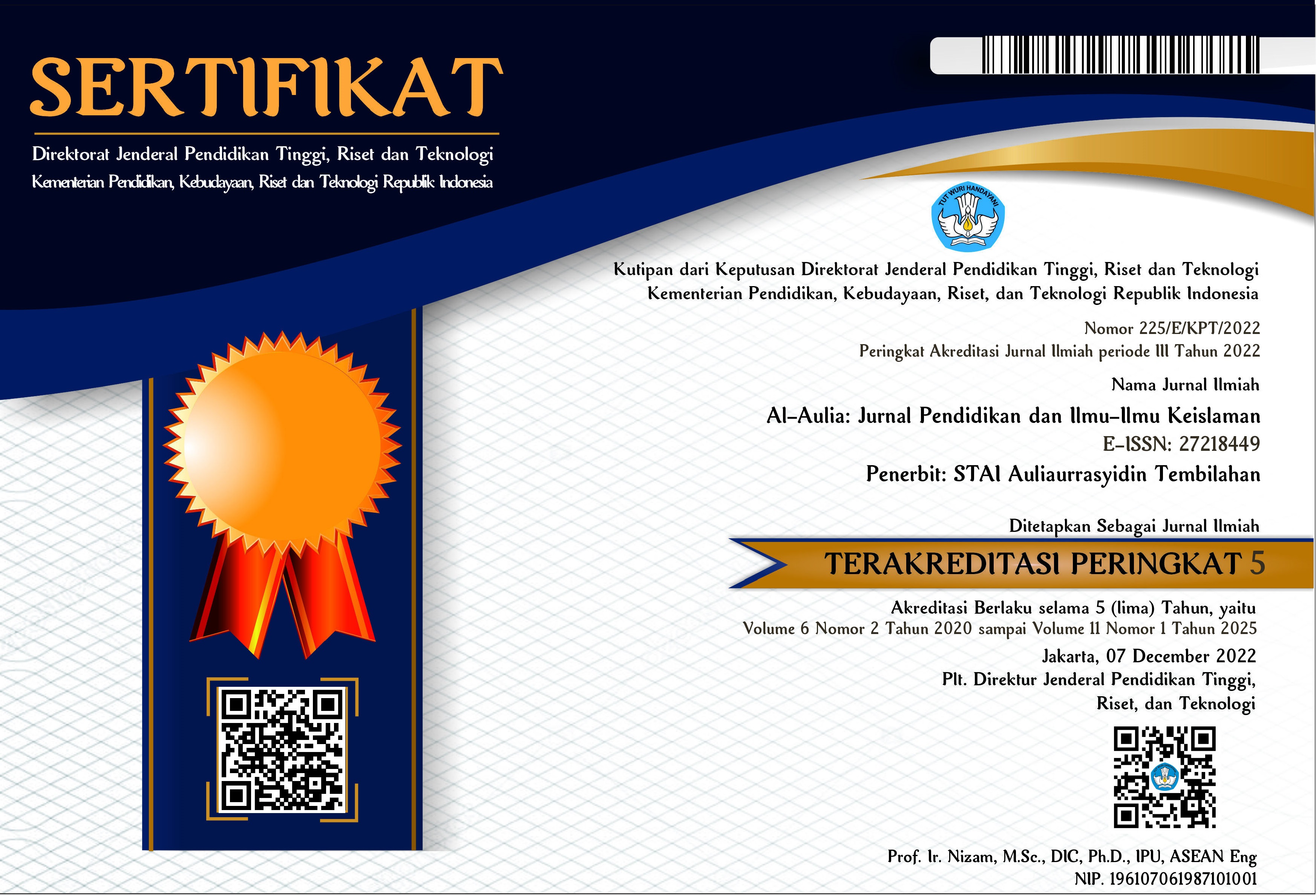Penerapan Metode Pembelajaran Case Studies dalam Meningkatkan Hasil Belajar Siswa Materi Sifat-Sifat Allah SWT
DOI:
https://doi.org/10.46963/aulia.v8i2.682Keywords:
Case Studies, Learning Method, Learning outcomesAbstract
The learning process that occurs in schools is that students only get material from the teacher after it is finished. One of them is the case studies learning method. The purpose of this research is to improve student learning outcomes in the material attributes of Allah SWT through the application of the case studies learning method in class VII B MTsN 1 Kerinci. Based on the Aqidah Akhlak test scores, there were 10 students with poor grades, 6 students with moderate scores, 3 students with good grades and 1 student with excellent grades. Based on cycle 1, there were 4 students with low scores, 8 students with moderate scores, 6 students with good scores and 2 students with very good grades. This shows that the learning outcomes of Aqidah Akhlak have not reached 50% of students whose learning outcomes are above the value/number 70, so that action is needed in cycle 2. Based on cycle 2 there were 10 students with sufficient scores, 5 students with good grades and 5 students very good students. This shows that the learning outcomes in this study have reached 50% of students whose learning outcomes are above the value/number 70, so there is no need for further action. The final conclusion in this study, the case studies learning method can improve learning outcomes Aqeedah morals, especially material about the Attributes of Allah SWT for students of class VII B MTsN 1 Kerinci.
References
Ahmad Rohani, 2004, Pengelolaan Pengajaran, Jakarta: PT.Rineka Cipta
Departemen Agama RI, 2002, Al-Qur’an dan Terjemahannya, Surabaya: Mahkota
E. Mulyasa, 2007, Kurikulum Tingkat Satuan Pendidikan, Bandung: PT.Remaja Rosdakarya
Mastuhu, 1999, Memberdayakan Sistem Pendidikan Islam, Jakarta: Logos
Nana Syaodih Sukmadinata, 1997, Pengembangan Kurikulum, Bandung: PT. Remaja Rosdakarya
Subana, dkk., 2005, Statistik Pendidikan, Bandung: Pustaka Setia
Downloads
Published
Issue
Section
License
Copyright (c) 2022 Yusmaneli Yusmaneli

This work is licensed under a Creative Commons Attribution-ShareAlike 4.0 International License.
Authors who publish with this journal agree to the following terms:
1. Copyright on any article is retained by the author(s).
2. The author grants the journal, right of first publication with the work simultaneously licensed under a Creative Commons Attribution License that allows others to share the work with an acknowledgment of the work’s authorship and initial publication in this journal.
3. Authors are able to enter into separate, additional contractual arrangements for the non-exclusive distribution of the journal’s published version of the work (e.g., post it to an institutional repository or publish it in a book), with an acknowledgment of its initial publication in this journal.
4. Authors are permitted and encouraged to post their work online (e.g., in institutional repositories or on their website) prior to and during the submission process, as it can lead to productive exchanges, as well as earlier and greater citation of published work.
5. The article and any associated published material is distributed under the Creative Commons Attribution-ShareAlike 4.0 International License







